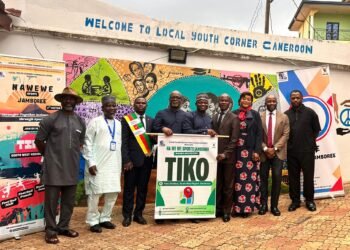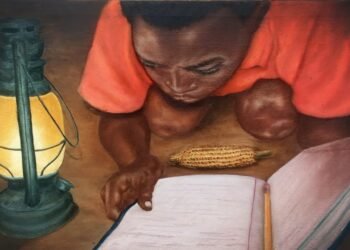An unprecedented journey into German colonial occupation of Cameroon is underway at an exhibition at the Sawa Cultural Palace in Douala – a historically significant town under German colonial rule.
Launched on August 8 by the new German Ambassador to Cameroon, Christian Sedat, the four months long exhibition dubbed “Once upon a time… the birth of Staat Kamerun 1884-1914” examines the new rules and codes introduced under German colonial rule, which have had a lasting impact on the social, cultural and economic fabric of Cameroon to this day.
An initiative of the National Museum of Cameroon, doual’art, the Goethe-Institut and the Douala City Council, the exhibition is organized with support from the German Foreign Ministry and it is the second in the country after the first that took place at the National Museum in Yaounde.
“Staat Kamerun,” or German Cameroon, existed as a German colony from 1884 to 1914. This period is the focus of the exhibition “Once Upon a Time… the Birth of Staat Kamerun 1884-1914,” which explores the profound impact of German colonial rule on Cameroonian society and culture.
“This exhibition is funded by the Foreign Ministry of the Federal Republic of Germany. This[funding] shows how Germany is ready to make amend with its colonial past,” Ambassador Sedat said at the opening of the exhibition fair.

Historically, Germany established its protectorate over Cameroon in 1884, marking the beginning of German colonial rule which ended in 1914 following its defeat in World War I.
Another segment of the exhibition focuses on Douala and traces the colonial borders that once separated diverse peoples and traditions, marking the birth of Cameroon as an administrative state. It confronts the forced submission to colonial norms, which disrupted ancestral customs and social and spiritual ties, and led to a lasting identity crisis.
Douala served as the capital of the German colony of Kamerun (Cameroon) from 1884 to 1901 becoming a major hub for German colonial administration and trade.
The exhibition is open to the public and serves as a platform for understanding the complex history of German Cameroon and its enduring impact on the nation’s identity and development.
First published in NewsWatch newspaper No 216 of Monday, August 18, 2025.

















